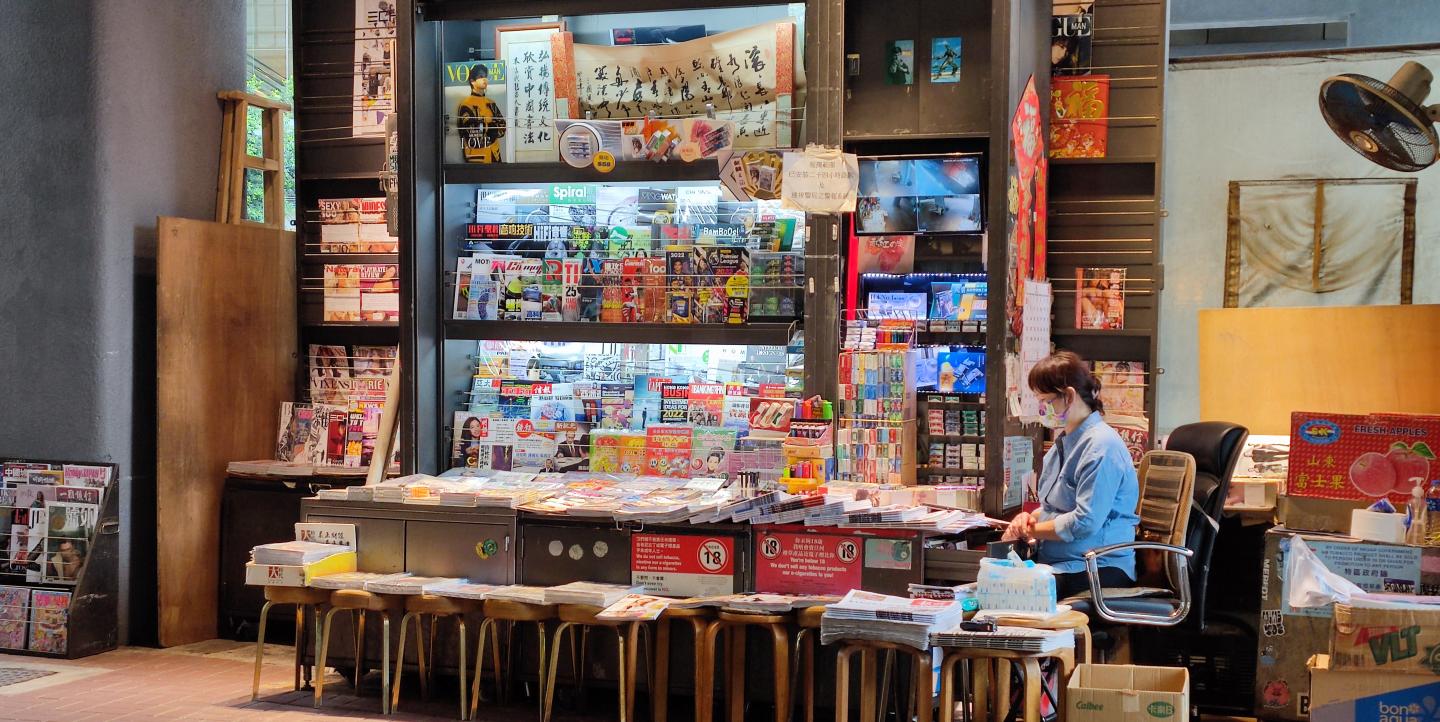Hong Kong is no longer the bastion of press freedom in the Asia Pacific it once was.
Since Beijing imposed the National Security Law (NSL) in July 2020, newsrooms have been raided, journalists arrested, and news outlets shut down.
Under this uncertain scenario, Hong Kong Free Press (HKFP) is the only independent English-language media outlet remaining. Founded by journalist Tom Grundy in the wake of the Umbrella Movement in 2014, the newsroom team of nine journalists continue their mission to inform, although cautiously.
I spoke with Grundy about the press freedom situation in Hong Kong today. Here’s what he had to say.
Is there any press freedom remaining in Hong Kong?
Grundy: The Hong Kong government says that nothing has changed and press freedom is still intact, but one only needs to read the blow-by-blow timeline on our website. [Hong Kong] remains somewhat of a media hub with international bureaus such as AFP, Reuters, AP and the BBC still present, although others have decided to bypass and set up in Taiwan.
[Journalism] has become a risky job. At Hong Kong Free Press we often get legal advice and we do what we can to put safety first.
Is the National Security Law impacting more local media and independent journalists?
I guess many will argue that there is more scrutiny of the Chinese-language media, as has been the case in mainland China for some decades.
Many outlets are owned by business people with interests in the mainland, or by Chinese conglomerates, which would often dictate a pretty conservative stance. Many topics have been sensitive and obvious for a long time, such as Tibet, Taiwan or Tiananmen.
Now, there are more sensitivities in Hong Kong and it is not clear where those red lines are; the terms seem not to be settled. This is probably beneficial for the authorities because a lot of the media and civil society will overcompensate.
Those blurry red lines can easily lead to self-censorship, no?
If you put the NSL at the front of your mind, and the journalistic tradition and code of ethics in the back of your mind, you're going to go crazy. You'll end up self-censoring.
Self-censorship can manifest when certain topics are covered in a very unbalanced way, totally ignored, or buried deep on page 16 of the press. It's hard to know what goes on in other newsrooms. We don't have any appetite to be breaking any laws, obviously, but we will nevertheless seek to get the news out.
How do you navigate that?
We’ve had to be more selective but there is no local hard news story that we cannot do. We will navigate those red lines and that’s how we get the daily news out.
In the early days, our mission was basically to fill the gap between Chinese and English. We slowly professionalized and expanded. In 2019, we were livestreaming a lot from the frontlines during the protests in ways that other news outlets didn’t.
Then COVID-19 hit and later did the NSL. Now we are reporting on the aftermath of that, especially from court. As so many news outlets have disappeared, their archives have too. Protecting our own archive has become quite important, and part of our mission is sort of writing that first draft of history in English.
Is controlling the media a way to also control Hong Kong’s past?
A few days ago, the government deleted an entire section on Hong Kong's history from its annual yearbook, which has been published for decades. On topics such as the 2019 protests, the government has utterly reframed its stance on what happened. Nowadays, the authorities even say that Hong Kong was never a colony.
It’s the media's duty to ensure that if something is falsely stated we call it out, working with facts. I know not all news outlets find that easy but we're not here to give a megaphone to the authorities.
How could future legislation impact the media in Hong Kong?
There have been over a hundred convictions under the NSL, although the authorities have sought to use it sparingly and have fallen back on the colonial era Sedition Law in recent years, which is more vaguely worded and broader. Hong Kong’s Basic Law requires the city to introduce its own security law. An attempt to pass it in 2003 collapsed under the weight of mass protests, but some analysts suggest that it will be active next year.
We’ve heard on-and-off suggestions about a crowdfunding law and fake news legislation. However, when the government refers to “fake news,” it tends to give examples of civilians posting things on social media, which is different from news outlets. There is not much evidence of any news outlets in Hong Kong posting outright falsities.
We don't know what it will look like and how it will affect us. It will probably have tougher sentences and I'm sure there will be some points of concern for the media.
Do you expect to encounter more pressures in the future?
What was unthinkable in the past has become normalized. There's billions of dollars involved and thousands of bureaucrats; I think we'd be naive to think that it's going to settle down.
One can just look at the early days of what was happening in China under Xi Jinping in terms of civil society, a crackdown on lawyers, and internet censorship. One might foresee that in Hong Kong this is just the beginning. I'm not particularly optimistic.
Why are you staying in the city?
We choose to stay because we still have opportunities and privileges that are certainly not available in mainland China. We can go to the legislature, we can monitor court hearings, we can go to press conferences and ask tough questions of top officials, including John Lee as I do every few weeks.
Whilst we can still do that, and find a way of reporting on hard news stories, at least from our privileged position as English-language media, then it's worth staying and occupying the remaining space. The day may come where we judge that we can't do our job and we would have to reassess.
We want to record what's going on in the city. There's still 7 million people that live in Hong Kong and a lot of people abroad and the Chinese diaspora. We want to show what happens when a once-free and semi-democratic open city gives way to a more authoritarian situation – as much as the government has said the NSL is similar to those abroad and has brought peace and stability.
I believe one of the reasons we are still around is that we have ensured that we are not an advocacy platform in any way. We have a strictly impartial stance, ethical standards that we share online, and absolute transparency with our funding. Just reporting on the facts, really, and allowing readers to decide.
Photo by Cheung Yin on Unsplash.


